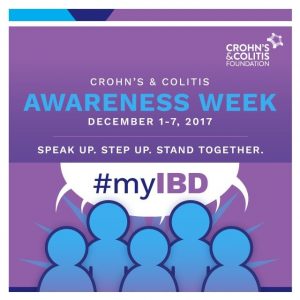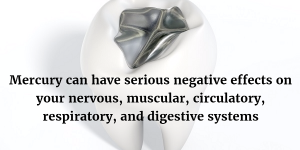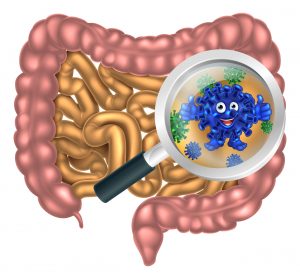 IF YOU suffer from or know someone who suffers from Crohn’s disease or ulcerative colitis, you will understand the toll these conditions can take on one’s physical and emotional health.
IF YOU suffer from or know someone who suffers from Crohn’s disease or ulcerative colitis, you will understand the toll these conditions can take on one’s physical and emotional health.
Crohn’s and colitis are a type of inflammatory bowel disease (IBD) in which an abnormal immune system response causes chronic inflammation in the digestive tract — currently, about 1.6 million Americans have Crohn’s disease or ulcerative colitis. According to the Crohn’s & Colitis Foundation of America, that number is pretty much split down the middle in terms of Crohn’s vs. Colitis, and the uptick in these conditions over the last few decades has been significant. To illustrate, there was a 74% increase in doctor’s office visits due to Crohn’s disease between 1992 and 2004.
What is Crohn’s Disease?
Crohn’s disease belongs to a group of conditions known as inflammatory bowel diseases (IBD). Crohn’s disease is a chronic inflammatory condition of the gastrointestinal tract. Symptoms can include:
- Persistent Diarrhea
- Rectal bleeding
- Urgent need to move bowels
- Abdominal cramps and pain
- Sensation of incomplete evacuation
- Constipation (can lead to bowel obstruction)
What is Ulcerative Colitis?
Ulcerative colitis is a chronic disease of the large intestine (also called the colon), in which the lining of the colon becomes inflamed and develops tiny open sores, or ulcers. The combination of inflammation and ulceration can cause abdominal discomfort and frequent emptying of the colon. Symptoms can include:
- bowel movements become looser and more urgent
- persistent diarrhea accompanied by abdominal pain and blood in the stool
- stool is generally bloody
- crampy abdominal pain
Diagnosis and Treatment
There’s no single test that can positively diagnose Crohn’s disease. If you have symptoms, your doctor may run a series of tests to rule out other conditions. Some physicians may suggest surgery or taking immune suppressants (which only treat symptoms), but we suggest seeing a holistic practitioner who can get deeper into the causes and provide natural treatments.
For example, in his book BIOLOGICAL MEDICINE, Dr. Thomas Rau of the Paracelsus Clinic says that he believes that ulcerative colitis and Crohn’s disease “are problems related to dental infective foci and heavy metals.” (Mercury/amalgam fillings etc. seem to be at the basis of many health conditions).
 When removing mercury fillings be sure that your dentist follows the IAOMT’s Smart Protocol – Safe Mercury Amalgam Removal Technique.)
When removing mercury fillings be sure that your dentist follows the IAOMT’s Smart Protocol – Safe Mercury Amalgam Removal Technique.)
Although a healthy diet is crucial to helping reduce symptoms, eliminating the dental infective foci should be a priority. In addition, supplementing one’s diet with Regulat can provide many benefits, especially as it supports both the digestive and immune systems. Here’s an example of how Paracelsus Clinic Lustmühle, the largest clinic for biological medicine and dentistry in central Europe with a healing tradition of over 50 years, uses Regulat to help with “gut health”. They have intensively used Regulat for several years for the following purposes:
Here’s an example of how Paracelsus Clinic Lustmühle, the largest clinic for biological medicine and dentistry in central Europe with a healing tradition of over 50 years, uses Regulat to help with “gut health”. They have intensively used Regulat for several years for the following purposes:
- Acid base regulation: Acid base regulation occurs due to the lactic acid in Regulat stimulating the anaerobic intestinal flora. Regulat® stimulates this anaerobic flora of the intestines which improve deacidification and detoxification.
- ProBiotic effect: the Prosymbiontic stages of bacteria present in Regulat® can develop like ProBiotics in the intestines, into life-supporting bacteria.
- Enzymes: Regulat® contains Proteolytic and digestive enzymes, produced and extracted by the fermentation process. Therefore Regulat® has a local intestinal anti-inflammatory effect.
All in all, Regulat® is one of the most active products for rebuilding intestinal harmony, especially the intestinal flora and acid base metabolism.”
Thomas Rau MD, Chief Physician
Crohn’s and Colitis Awareness Week
The Crohn’s and Colitis Foundation invites you to stand together and bring more awareness to IBD than ever before. Use #myIBD to educate others for better understanding and to strengthen the fight to spread awareness of some underlying reasons for Crohn’s and ulcerative colitis. Regulat will be promoting Crohn’s and Colitis Awareness Week on our social media to support this campaign. Please check out our facebook page for more information.

 Kombucha is a popular beverage touted for its health benefits, like natural probiotics. Though it comes in a spectrum of varieties, it is essentially a fermented tea – that is concocted with sugar and sometimes different flavors (e.g. fruits, herbs, etc.) – and is full of beneficial bacteria. It becomes naturally carbonated throughout the fermentation process. For this reason, it is also important to keep in mind the effect of kombucha on teeth and that it
Kombucha is a popular beverage touted for its health benefits, like natural probiotics. Though it comes in a spectrum of varieties, it is essentially a fermented tea – that is concocted with sugar and sometimes different flavors (e.g. fruits, herbs, etc.) – and is full of beneficial bacteria. It becomes naturally carbonated throughout the fermentation process. For this reason, it is also important to keep in mind the effect of kombucha on teeth and that it